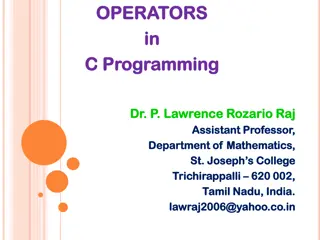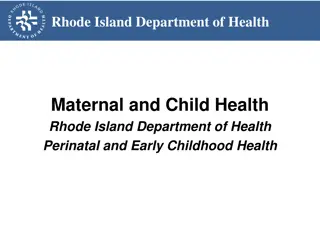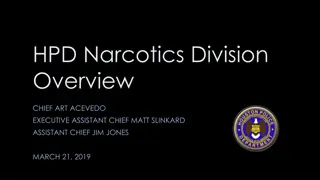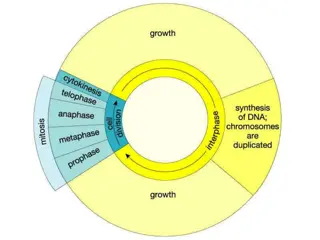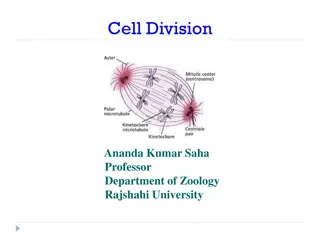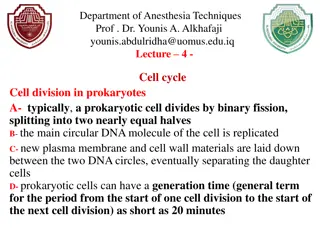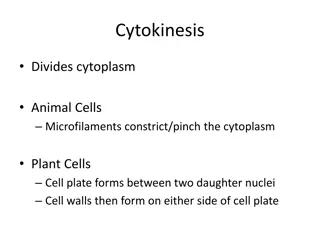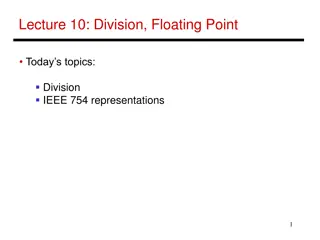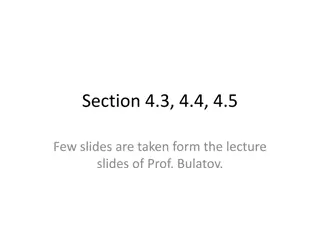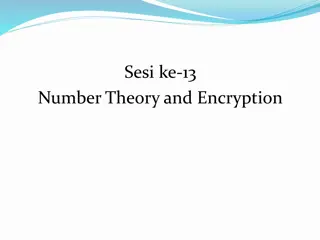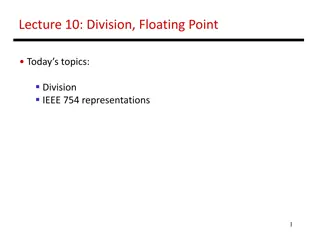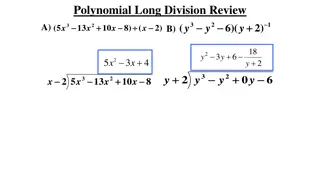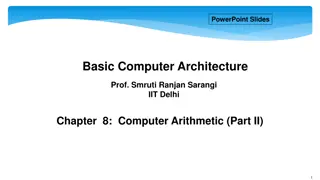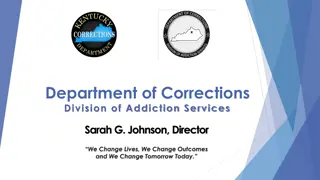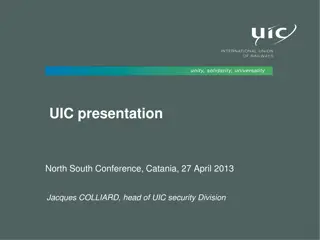Overview of VA Research Support Division Program
The Research Support Division (RSD) program at the VA focuses on providing guidance and implementing enterprise information security standards for stakeholders involved in research programs. Their mission includes ensuring data security, risk management, and transparency while advancing VA Research. The program caters to Principal Investigators, ISSOs, Network ISSMs, and research staff across various research domains, supporting over 110 accredited research sites. Key personnel like the Chief Information Security Officer and Cybersecurity Support Staff lead the information security efforts within the organization.
Download Presentation

Please find below an Image/Link to download the presentation.
The content on the website is provided AS IS for your information and personal use only. It may not be sold, licensed, or shared on other websites without obtaining consent from the author. Download presentation by click this link. If you encounter any issues during the download, it is possible that the publisher has removed the file from their server.
E N D
Presentation Transcript
RESEARCH TOWN HALL RESEARCH SUPPORT DIVISION (RSD) PROGRAM OVERVIEW DuJuan Williams RSD Program Manager May 04, 2020
Topics ___________________________________________ RSD Program Introduction Research Scientific Computing Devices (RSCD), Enterprise Risk Assessment (ERA) Research Cybersecurity Administration Program RCAP Enterprise Research Data Security Plan (ERDSP), Support for Multi-site Protocols Research Systems Support Research Information Security Task Force (RIS-TF) On The Horizon Office of Information and Technology 2
RSD Program Overview Mission Vision Consult with stakeholders across the VA enterprise participating in research programs providing guidance in complying with research information security policy. Respond to research security needs by using a risk management approach to develop and implement enterprise information security standards, guidelines, and procedures that address security objectives that are in alignment with the customer s business considerations and objectives. Provide stakeholders participating in VA Research with a transparent and risk-based security process that uses security controls to protect research data, but not as a reason to limit the appropriate research uses of the data. Identify and address data security risks to participant data while enabling VA Research to advance. Stakeholders Scope Principal Investigators (Researchers) Facility ISSOs & Network ISSMs Research Staff System Owners Supporting 110 Sites accredited to conduct: Human Subject, Clinical, & Biomedical Research Animal Research Basic Science Research Enterprise Construct: Enterprise support is representative of research systems, protocols, applications, and projects occurring at the national and multi-site level. Collaborative and Cooperative research involving Investigators from more than one institution. 3
Office of Information Technology Information Security & Strategy, System Security Support Organization Chief Information Security Officer Paul Cunningham Executive Director Information Security Policy and Strategy (ISPS) Gary Stevens Director, System Security Support Woodie Robinson Cybersecurity Support Staff Lead Kevin Zempko Senior Action Officer Jessica Alvarez RSD SDSD Program Manager DuJuan Williams Program Manager Tanya Gonzales Research Support Division (RSD) Team Blagg, Kenneth Carroll, Tristan Johnson, Carol Peters, Terry Quintela, George Sasaki, Roland Taylor, Terry Essary, Kevin Chase, Stuart Specialized Device Security Division (SDSD) Team Cassella, Joseph Davis, Erick Ford, Shaunna Green, Lawrence Khan, Christopher Larson, Stephanie McFadden, Trimaine Sadlon, Kurt Vollmer, Katherine Vacancy 2 Vacancy 3 4
RSD Organization & Key Program Areas Conduct Monthly Teleconference (ISSO/ISSM audience) Published 3 ITWD On Demand Training Courses. 4th Course to be published Research Cybersecurity Compliance Assessment Published Enterprise Security Guidance documents to support Training & Awareness Research Cybersecurity Assessment Preparation (RCAP) support Information Assurance Support Program (IASP) Initiatives Enterprise Research Data Security Plan (ERDSP) development and soft pilot release Support VACO Central IRB on Research Protocol, Informed Consent, Data Usage Agreement, MOU, CRADA, reviews Research Information Security Taskforce (RIS-TF) & Task Management Conduct reviews of Multi-Site IRB Protocol Data Security Assessments Information Security Support Program (ISSP) Initiatives ATO Sustainment Support to major research systems including GENISIS, RedCap, Qualtrics and VAIRRS Continuous Monitoring of security controls, results of control assessments to control compliance Research Scientific Computing Device (RSCD) Enterprise level Risk Management, Enterprise Risk Assessment (ERA) and Risk Scoring. RSCD Isolation, Vulnerability and Incident Management System Security Support Program (SSSP) Initiatives 5
What is an RSCD? Overview Enterprise Risk Analysis on RSCDs The following are drivers for conducting an Enterprise Risk Analysis (ERA) on Network capable RSCDs: A standalone or network capable system or device that cannot obtain VA approved baseline configuration settings, and/or interfaces with scientific/clinical instrumentation(s) in direct support of research activities and scientific studies. These systems have the purpose of ultimately contributing to healthcare services and the well-being of Veterans. Establish pathway for securely connecting lab RSCD s to the VA Network and enhance enterprise device security posture Recommend information security standards to guide the RSCD risk assessment process to ensure risks to VA are adequately mitigated A RSCD includes instrument(s) that have an internal operating system and central processing unit used to acquire / analyze data and for indicating, measuring and recording physical quantities, attributes, and other formulas. Promote Re-use, Avoid duplication across research labs; Introduce a standard process for reviewing and isolating RSCDs to ensure continuous monitoring of security, and mitigation of risk Lack of standardization, guidance, and policies increases VAs material weakness and vulnerabilities leading to possible loss of records and valuable research data, regulatory fines and a possible compromise of PHI, PII, intellectual property and/or VA sensitive information A RSCD system is a suite of hardware, software, and scientific applications, to include databases and webservers that are physically part of and dedicated to the mission of research and/or scientific studies. 6
Research Scientific Computing Devices (contd.) In the Second Quarter (Q2) of 2020, a new process will rollout for submitting RSCDs to OIT and RSD for evaluation and connection to the VA network. The process will utilize the Service Now (SNOW) ticket system for submission. It will mirror a similar system for connecting Medical Devices and Special Purpose Systems. Pilot conducted at San Francisco VAMC. Guidance and training will be made available soon. It is recommended that sites pick some RSCDs for prioritization for submission. Please watch for announcements about the new process. 7
Research Cybersecurity Administration Program (RCAP) Overview RSD s objective is to provide assistance and guidance to local facilities conducting research, while adhering to research information security policy. The following are some of the outlets used for this purpose: Monthly National Cybersecurity Research Teleconference (NCRT) Webinars Research Cybersecurity Administration Program (RCAP) Formalized ITWD Training 8
Research Cybersecurity Administration Program (RCAP) Overview (contd.) The Research Cybersecurity Administration Program (RCAP) includes the following components: On-site/Remote visits that assist with training, education, and awareness to include assessment of the existing research security posture. During site visits, RSD will provide training & policy guidance to research stakeholders. Additionally, RSD will assist with identification, remediation and education of identified compliance gaps both during and following site visits. Before site visits are conducted, RSD, as part of RCAP, will engage the facilities research stakeholders requesting information security documentation for review and leverage the following artifacts ahead of the scheduled visit: Letter of Notification Control Assessment Checklist Self-Assessment Questionnaire Control Assessment Matrix Following site visits, RSD as part of RCAP, will continue remediation support efforts to assist facilities with becoming compliant on all identified compliance gaps. 9
Enterprise Research Data Security Plan Development The Enterprise Research Data Security Plan (ERDSP) Development is a collaborative effort between VHA Data Owners (ORD) & Research Stakeholders (ORO, OIS, ESO) to balance security needs and security control requirements against the following factors: The Mission of VHA Research Operational Use of the Data within the Environment Available Resources Identified Risks 10
Enterprise Research Data Security Plan Development The ERDSP was developed in response to an Enterprise Cybersecurity Risk Assessment for Research Protocol Data Management conducted by OIS & ORPP&E. The ERDSP assists Principal Investigators (PIs) with documenting their plan for managing risks to protect research data (human subject, basic science, animal) within a research protocol. The ERDSP provides a mechanism to account for the security of research protocol data during each stage of the data management life cycle and is a reliable way to ensure the consistent and standardized ISSO evaluation of a research protocol s data usage, storage, sharing, and transmission requirements during the IRB/R&DC review process. 11
Research System Support Overview Systems with an ATO are authorized to store and process VA data. Researchers may use or encounter these systems in their research projects. Research Support Division (RSD) provides ISSO support for national research systems. In 2018, Research Support Division (RSD) started with supporting two research systems for ATO (Authority to Operate). Today, RSD supports 22 systems, 13 systems with ATO and 9 systems pursuing an ATO. This list is a quick way to determine if the system proposed for use has a valid VA ATO (Authority to Operate). Providing Continuous Monitoring support to System Owners for continued system authorization and approval. RSD ISSOs can provide guidance to local ISSOs as needed. 12
Snapshot of Supported Research Systems System ISSO System Owner ATO Status Research Use CSP - Cooperative Studies Program Multi-site clinical trials and observational studies Tristan Carroll Doug Smith ATO Granted GENISIS Terry Taylor Vanessa Davis ATO Granted Genomic (DNA) analysis MVP-Mail Print Scan IPSOS Mail surveys and scan in returned surveys for MVP Management and documentation of IRB processes. Management and documentation of IRB processes. Management and documentation of IRB processes. Kevin Essary Edmund Peirce ATO Pending IRBManager Tristan Carroll Terrill Harrison ATO Granted IRBNet George Quintela James Breeling ATO Granted iRIS Tristan Carroll James Breeling ATO Granted Maveric - Data Labs Terry Taylor Michael Wynn ATO Granted Data Analysis EDC, Survey and Survey Result Analysis Survey and Survey Result Analysis RedCap Stuart Chase James Breeling ATO Granted Westat Terry Taylor James Breeling ATO Granted *Complete list of Major Applications available for review at the RSD Application & Information System Tracker SharePoint Site 13
Research Information Security Task Force The Research Information Security Task Force (RIS-TF) will serve as a steering committee that will meet on a regular basis to proactively address current and future Information/System Security processes for the collection, storage, and sharing of research information, emergent use of information systems that advance VHA Research and Development s research mission, and the identification of policy gaps related to the protection of VA research data. Primary objectives includes mitigating risks identified by ORO and ORD and to develop policy recommendations that align processes, business, and technological approaches to address cybersecurity risks and compliance with federal and agency requirements and in support of the VHA research mission. Examples of Known Vulnerabilities Improperly documented external connections in research. Inadequate configuration and approval of mobile portable devices Storage of VA sensitive information on unencrypted Non-VA IT devices Unusual specialized research systems that are not sufficiently addressed in existing policy Inadequate inventorying of non- VA IT equipment Use of Non-VA networks at VA facilities 14
On The Horizon Collaborating with ORPP&E to facilitate an enterprise level multi- site security review process for research protocols that do not go through the CIRB 15
QUESTIONS? For support contact OIS-Research Support Division (RSD) team at: OITITOPSSOESOResearchSupportDivision@va.gov Research Cybersecurity Frequently Answered Question (FAQs) 16




